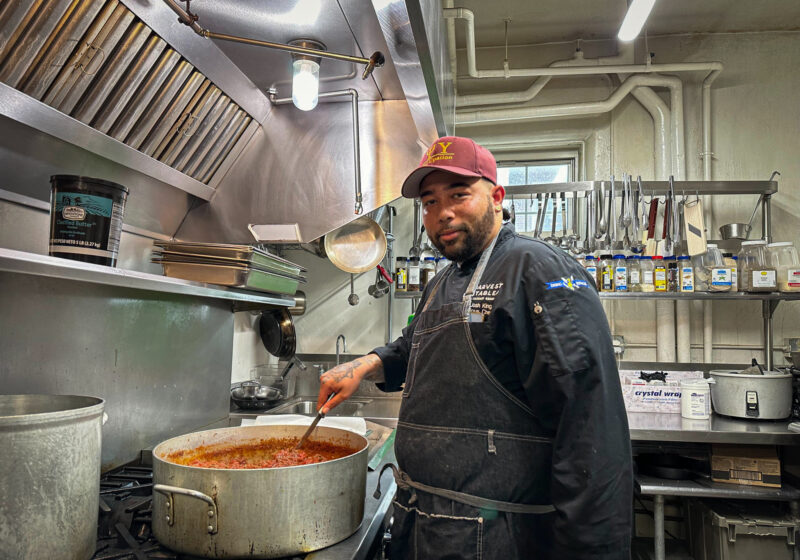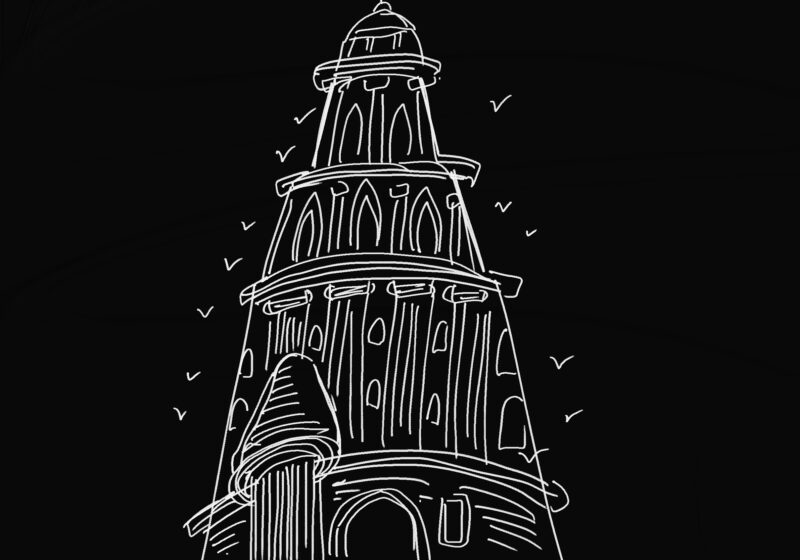Just three months ago, I was living in a beautiful, vibrant little coastal town called Punta Santiago, commuting by boat to work every morning before 7 a.m. with brilliant minds from around the world. I was conducting cognitive experiments with a population of around 1,500 free-ranging rhesus macaques on the famed “monkey island” — Cayo Santiago.
This little paradise, and others like it, was destroyed along with the entire island of Puerto Rico on Sept. 20 as Hurricane Maria tore through the Caribbean. It breaks my heart to see the destruction this has caused, but it breaks my heart even more to see that President Trump’s administration is acting so slowly, if at all, in response.
Before I arrived, I was so thrilled at the prospect of working with more than 1,500 monkeys — many of them new-born babies or juveniles — that I didn’t even think twice about the town I would be living in. I still remember the drive into Punta with vegetation all around and the beautiful ocean visible in the distance. The houses were small and colorful, and small restaurants and bars out in the open lined the streets. There was an iconic wall of murals with the Puerto Rican flag painted in five different colors, where many people stopped to take photos everyday. A couple days ago, I saw a video of the drive into Punta now — with trees toppled down, houses in ruins, and no more iconic murals.
Over my three weeks there, we were so busy collecting data on Cayo Santiago, the island where the monkeys rule, that I unfortunately had pretty limited experiences with the people there. Yet the few interactions that I did have were precious and warm moments that made me fall in love with the place. One time, I was in a cashier line at the nearby Walmart and the woman waiting in front of me started talking to me. She was a local in Punta and had worked with HIV patients for over 20 years, including — for a short time — in the States. During the wait, she told me about her daughter, who is a successful teacher, and her son, who is deciding on what he wants to study in college. She was very warm and encouraging of what I was doing to pursue my dreams, and gave me a big hug before we parted ways.
Another time, I was sitting on our front porch — reading to pass time since we didn’t have Wi-Fi in the house — when a man came over from the house next to us. He greeted me and asked if we wanted some fresh bread. I wasn’t sure if he was a vendor or not, so I immediately refused. He responded with a warm smile and insisted that “these bread will make good breakfasts.” He didn’t charge us anything — he simply wanted to share some fresh bread with us.
We went to Chili’s a lot during our time in Punta, and one time we had the sweetest waiter that I have ever met. He kept apologizing for his English even though he spoke it well, and used the cutest and politest phrases. Everytime he came by our table, he greeted us with genuine hospitality and a warm and bright spirit. His enthusiasm to help, serve, and learn was truly refreshing.
To think that these are the same people who are dealing with broken homes, extremely limited food and water, and no power and telecommunication makes my heart sink. On the morning of Sept. 28 — a week after the hurricane hit — the Jones Act (a shipment law that restricts foreign aids to be delivered to the port in Puerto Rico) was finally waived by Donald Trump for a 10-day period. However, less than five percent of these relief goods have actually been delivered because of a lack of gasoline and diesel, and the loss of the ability to communicate via phones. For small towns like Punta, the Department of Public Works team has only come once as of Sept. 30 — with limited resources and help. People have to wait in long lines in order to get cash from ATMs, and get gasoline from gas stations. They bathe in natural bodies of water and they limit themselves to about one meal a day. Despite all of this, the staff at the Caribbean Primates Research Center — who manage the monkeys on Cayo Santiago — continue to sail over to Cayo to help restore battered facilities and, most importantly, feed the monkeys.
But when these dedicated, warm, and strong people — who are trying everything to help with restoration — ask for more help, Trump tweets, “They want everything done for them when it should be a community effort.”
I am not a citizen of the United States, and I don’t know much about politics, but I just cannot not see what Trump gains by adding insults to an already broken community that has lost so much and is just managing to survive.
Puerto Rico — my heart is breaking for you and your people. I believe in your resilience and strength. And my friends, as you walk around campus today — sipping water, eating food, and using your phone to contact friends and family — think about these people and others who have been devastated by recent the hurricanes and earthquakes. Be thankful for what you have and help in any way that you can.





